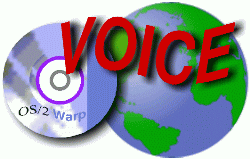

This series of articles is not about recommending specific
hardware and/or software. It's about information.
True to the tradition that is IBM, there are a few "under-documented"
issues that everyone should be aware of.
As we all know, the HPFS file system in OS/2 can deal with SCSI hard drives setup
with more than 1024 cylinders without any problems whatsoever. That's one of the
benefits of running a SCSI disk subsystem. But the Adaptec cards have a SCSI BIOS
setting to "Enable DOS Translation for >1Gb Hard Drives" which is required
when using one of these hard drives in a DOS environment.
Now, previously, the OS/2 Drivers for these cards (AIC7870.ADD) didn't care whether
or not you had enabled this setting on the SCSI card. However, the new drivers being
released by IBM assume that you have enabled this translation. If you have NOT enabled
the translation (the IDE equivalent of LBA support), and you apply the new drivers
included in the fixpaks, then you'll have difficulty accessing the SCSI hard drives
attached to this card. The worst case I have experienced is when you run CHKDSK.
You'll get an error message that says CHKDSK could not find the root directory of
the drive in question, and that it will attempt to recreate the root. At this point,
if you allow CHKDSK to continue, you'll lose most of your data, and the drive will
likely be trashed, requiring a low-level format to recover the drive for use. Your
data is gone.
There are 2 solutions to this problem. (Also a possible number 3 from Adaptec)
1. Do NOT use the newer drivers from IBM. Rename the current AIC7870.ADD file
to something (anything) else. I used ADAP3940.ADD.
Edit your config.sys file REMing out the original statement ( BASEDEV=AIC7870.ADD
) to reflect the change by adding:
BASEDEV=ADAP3940.ADD /V
This will insure that any subsequent fixpak installations will NOT change or
overwrite the working driver you are now using.
2. Backup your hard drive(s).
Go into the Adaptec BIOS settings, and enable the DOS Translation for >1Gb
drives.
Reboot the system, and enter the Adaptec BIOS utility.
Perform a Low-Level format of the drives.
Re-Boot the system
Run FDISK and partition the drives.
Re-Boot the system.
Format the partitions as you need.
Run your RESTORE program, and restore the contents of the drives.
You should now be in a mode compatible with the latest drivers for this card
as released by IBM.
3. Adaptec has a new set of OS/2 drivers for their 7800 Series Family of Adapters.
I have been told (but not actually tested as I don't have a recent backup) that
the Adaptec drivers do NOT assume that the >1Gb Translation is enabled.
Filename is 7800os2.exe and is available from Adaptec at the following URL:
ftp://ftp.adaptec.com/pub/BBS/os2
The date on this file is July 9, 1998
Two months ago, IBM released the latest EIDE drivers for OS/2 in a package called
IDEDASD.EXE (available from the DDPAK Online website). These drivers not only provided
support for busmastering IDE controllers (running the Intel chipsets) but also provided
compatibility with IDE drives >8.3Gb.
Now, two months later, IBM releases Fixpak 7, and guess what? The FP7 IDE drivers
do NOT support drives >8.3Gb. If you have an IDE driver >8.3Gb in your system,
and you want to apply FP7, do NOT overwrite the IBM1S506.ADD driver that you currently
use to access your large IDE drive. If you have already overwritten the file, you'll
need to install the IBM1S506.ADD driver from the IDEDASD.EXE package, again, to
get access to your >8.3Gb IDE drive.
Editorial Comment:
I have to admire IBM for NOT releasing, as GA, any product,
file or driver that is deemed "not ready for primetime". For technical
reasons, the IBM1S506.ADD driver that supports >8.3Gb hard drives is not ready
for a Fixpak level release. But there are a great many OS/2 users who need that
support, and we are fortunate that IBM has a policy in place to make these drivers
available to us to use, now.
But I feel I must make the observation that IBM could have
made it clear, in a way easier to find than reading through all the readme file,
that this support was NOT included in the Fixpak release of the drivers.
Rant Mode Off
While I'm on the subject of Busmastering (UDMA) IDE drivers, there still seems
to be some confusion as to what is and what is not supported by the IBM drivers
as far as UDMA (busmastering) support is concerned.
In a nutshell, if the PCI IDE Chipset on your motherboard is an Intel chipset,
then the IBM driver (IBM1S506.ADD) will support UDMA (busmastering) on the IDE bus.
If the chipset is NOT an Intel chipset, it won't. You'll have to get the chipset-specific
driver from the manufacturer. For SiS chipsets, the OS/2 drivers are available from
the SiS website (http://www.sis.com.tw/index.html). If you have a VIA chipset, you
either have to request the OS/2 drivers from VIA, or you can FTP them from me (ftp://abraxas.dyndns.com). NOTE, however, that
the VIA drivers are based on code provided by IBM that is at least 4 revisions old,
and will NOT support >8.3Gb hard drives.
The latest release of the IDE Busmastering driver from IBM has Busmastering turned
ON, by default. The driver will poll your chipset to see if it supports the Intel
standard for busmastering. If it does, busmastering is enabled. If it doesn't, busmastering
is disabled.
However, in a few, not-so-rare cases, the non-intel chipset will report, erroneously,
that it does support busmastering, when in fact, it doesn't. The driver reads the
positive report, and enables busmastering, and you can't access your hard drives.
If you have fallen victim to this scenario, adding the /!BM
switch to the config.sys statement that loads the driver will manually disable busmastering
support, and you will, again, have access to your IDE drives.